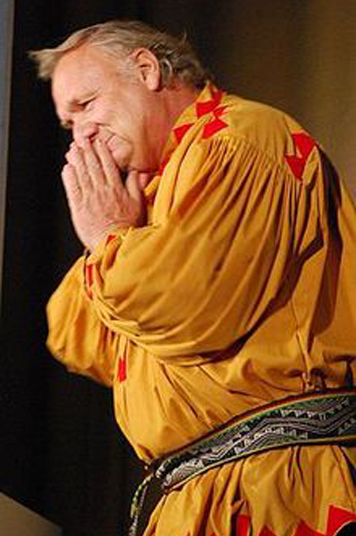
Tarahumara Relief Fund
Romayne Wheeler was born in 1942 in St. Helena, California, pianist, composer, poet and painter. His first musical influences came from Latin America, where he learned how deeply music is rooted in nature. After finishing high school in Monterey Bay, California, he dedicated himself wholeheartedly to his professional studies in Salzburg and Vienna, Austria. In 1968 he graduated as a composer in the “Wiener Musikhochschule” (Vienna University of Music) and as a concert pianist in 1972, in the “Konservatorium der Stadt Wien” (Vienna Conservatory of Music). Now Romayne is celebrating 42 years of lengthy annual tours and only returns to his adopted homeland in the Sierra Tarahumara to rehearse, compose, write and paint in his place of refuge: The Eagle’s Nest, or “Rosorá a jué” in the Rarámuri language of the Tarahumara Indians. After travelling through 51 countries, he has fallen in love with the beauty and vastness of the Copper Canyon, the kind and serene manner of the Tarahumara natives and their inherent love for music. Since 1968, Romayne has performed as a pianist and composer in Europe, Canada, USA, Mexico, the Near East, China, Thailand, Nepal, Taiwan and Japan. As a composer he was determined to discover the intimate relationship between the natural world and the spiritual realm of the soul. As a musicologist he followed this goal while studying the hidden meaning in the Kachina Dances of the Hopi Indians, who live near the Grand Canyon in Arizona. While his work continued to grow following these parameters, Romayne got to know the indigenous Tarahumara (Rarámuri) who live in and around the area of the Copper Canyon and Batopilas Canyon in Western Chihuahua, Mexico.
He was welcomed by a nucleus of native families in the community of “Munérachi,” who adopted him as one of their own. During the first twelve years (1980-1992) he came as an annual visitor from Vienna to write and study their music. He lived for over two months each year in a cave near the high rim of the Munérachi Canyon. Here he stayed with his adopted Rarámuri family, always accompanied by a throng of curious and hungry children. From Vienna, he brought with him one of the first sampled piano keyboards, with the acoustic sound of a Steinway grand piano recorded note by note into the keyboard. It became known as “the solar piano” because the sound was amplified via the energy from solar panels. The sound of the piano filled the canyon and turned Romayne into a tourist attraction for the Tarahumara. They loved the crystal clear sound of the piano and would say: “play the so that it will rain!” The assimilation of another way of living and thinking led Romayne to take the crucial decision of leaving behind much of the modern world, with all of its advantages (and all of its traps) as well as its advances (and its pressures) and in 1992 he settled permanently with his Steinway concert grand piano in the high, rare and fascinating world of the Tarahumara. It became more interesting for him than travelling to a distant planet, because here he could draw near to the origins of mankind, where the person of most value is the one who contributes most to other’s wellbeing. Thus, Romayne became part of a community, which in the beginning was entirely unconnected to his childhood, but now has become an integral part of his world, his way of seeing things, their way of thinking, interpreting and sharing music. Since 1992, Romayne has been raising funds through his concerts, not only for his subsistence, but also to alleviate famine during the times of draught. His community (Munérachi) includes over 380 families, scattered in the highlands and in the depths of the canyons; some are even deeper than the Grand Canyon in Arizona. For fifteen years (1985-2000) Romayne spent 3/4 of his income to help support the clinic “St. Teresita” in the town of Creel, in the high Tarahumara country – whose focus is mainly on the health care of Tarahumara Children. From the year 2000 on he has changed his emphasis to the health care of his community and to providing scholarships for children who desire to study beyond primary school. Thus many have been able to develop their potential, primarily becoming teachers and nurses in their own environment. One of his best known students is his first pupil and godson, Romeyno Gutiérrez Luna – son of his neighbor Juanito, who is also a gifted violinist. Romeyno is now a student in the Chihuahua Conservatory and is an up and coming composer and pianist, having performed in various venues in the United States and Mexico. The Eagle’s Nest is where Romayne desires to stay as long as God allows him to live; composing, exploring new repertoire, writing, painting and sharing life with his large extended family.
